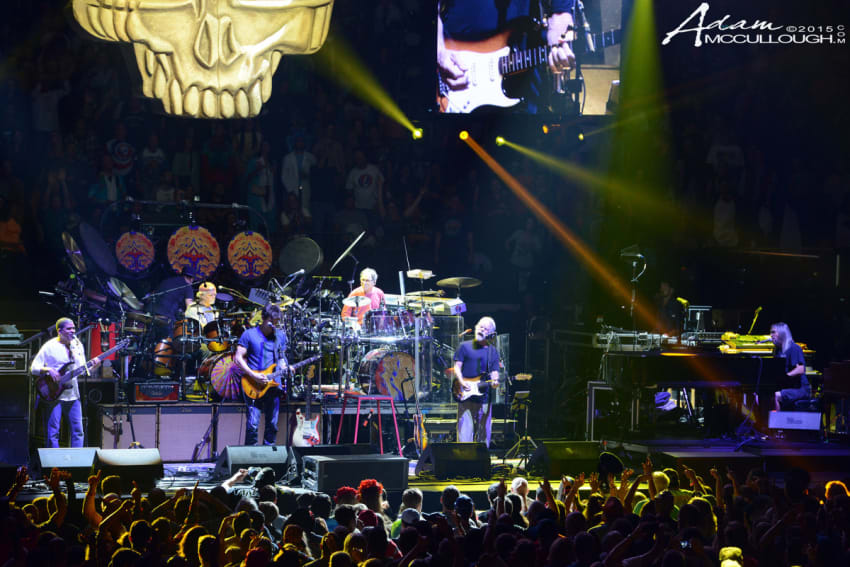Interview: David Gans Talks Grateful Dead Book, Album & More
By Chad Berndtson Dec 4, 2015 • 10:10 am PST
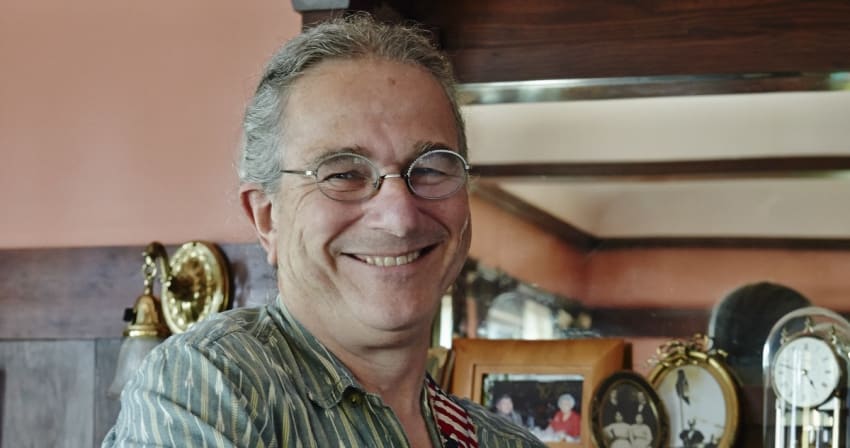
:: David Gans Talks This Is All A Dream We Dreamed: An Oral History of the Grateful Dead ::
David Gans and Blair Jackson have what Gans describes as 75 years of Grateful Dead journalism between them, so they were certain that their new book This Is All A Dream We Dreamed: An Oral History of the Grateful Dead (Flatiron Books, 2015) would have to be something that not only came from a learned place about the band but also was going to be more than “just another Dead book” in the already-crammed library of Grateful Dead literature.
The resulting work is a nearly 500-page doorstop: a rich, griot-style exploration of the Grateful Dead that draws on archival and new interviews from the band members themselves, marquee names like Bill Graham, Ken Kesey, David Crosby and Miles Davis, musical scholars immersed in the Dead and who play Dead music as a vocation, such as the members of Dark Star Orchestra, and lesser-known folks — secretaries, crew members, onlookers, country-crisscrossing fans — who are the part of the Dead fabric and whose memorable stories Gans and Jackson have rooted out.
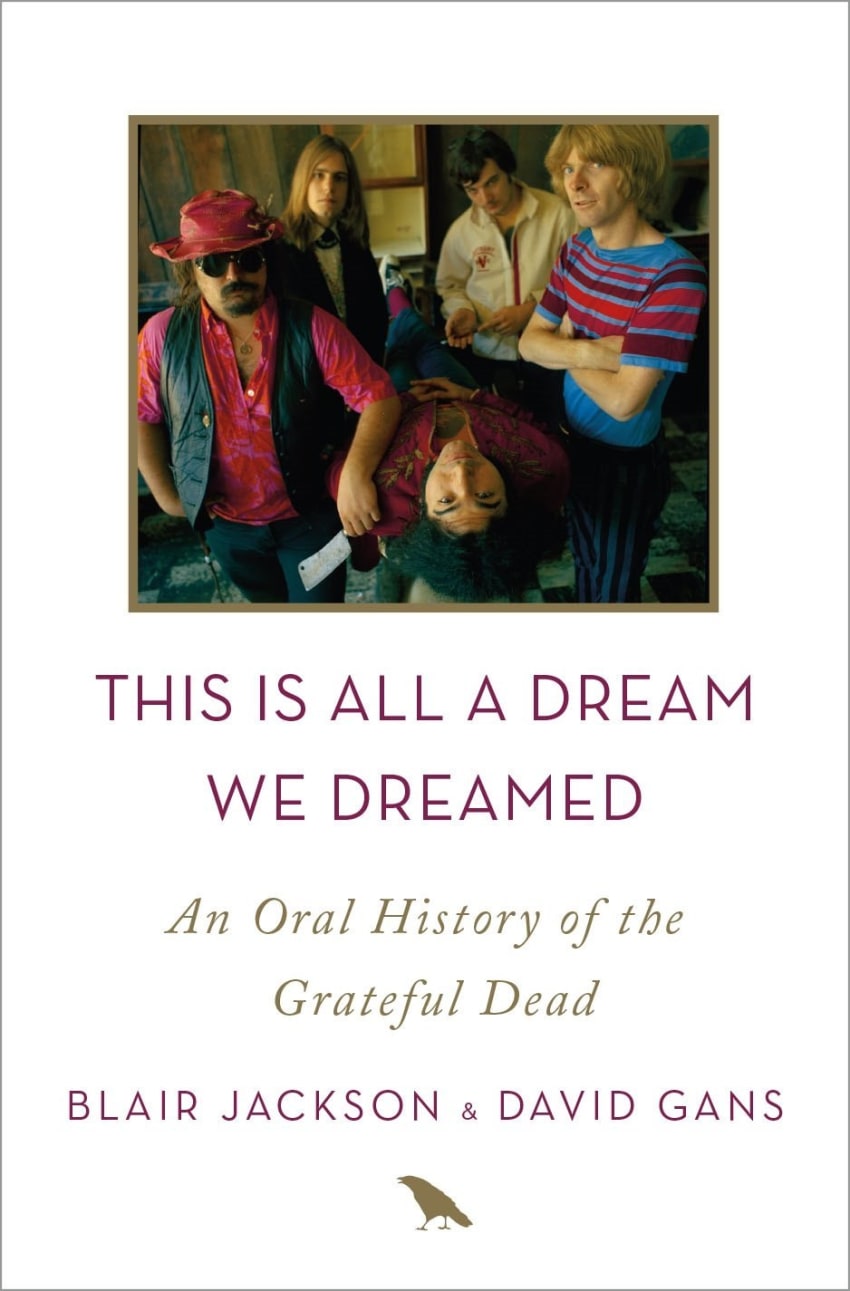
There are a few nuggets even hardcore Deadheads might be reading for the first time, but the appeal of the book isn’t so much the revealing of new information as it is the structure, in which voices and stories come across as immersive moments and memories instead of the panoramic sweep of a history or a biography. (If you were a fan of Bill Kreutzmann’s barstool storyteller style in his recent autobiography Deal, you’ll find a lot to grab onto here.)
Gans himself has also released a new album, It’s A Hand-Me Down, that includes 13 Grateful Dead interpretations, many often found in Gans setlists. He keeps busy as a musician as well as a scholar, and continues to add dates where he can. (Of particular note: The all-star band he put together to salute the One from the Vault anniversary on August 13 in San Francisco is returning to the Great American Music Hall on December 20, this time with no exact theme besides that it will be Dead music. Tickets are available here.)
Here’s Gans on the book and what’s coming:
JAMBASE: David, you’re a longtime contributor to Dead scholarship and of course know everything that’s come before. How does This Is All a Dream We Dreamed stand out from the galaxy of other Grateful Dead books out there?
DAVID GANS: Blair and I have a long friendship — we’ve been working together on Dead stuff and have been friends for close to 40 years. The approach from the beginning was to do an oral history rather than a narrative, where the participants get to tell the story and we’re not interpreting their story. I have a long history of interviewing people on the radio and in print, so this is a very natural and comfortable format for me. We figured out right away that we wanted to let the story be told by the people who are in it — it’s such a colorful story, and there’s so many smart people involved in it.
JAMBASE: How many new original interviews are included in the finished product?
DG: A lot. Between us, we have about 75 years of journalism on the subject. Blair and I both have big file cabinets full of stuff but since between us we’ve already done seven books on the Dead, we wanted to not re-use material. We basically ignored some of the major interviews we’ve done because the material was used for other books.
It was great to get to work gathering new material, and in particular we wanted to have a lot of female voices. There’s been some of that already from people like Rosie McGee, and I know Mountain Girl also has a book on the way, but we wanted to make sure people like Betty Cantor-Jackson and Donna Jean Godchaux were represented, along with people like Gail Hellund, who was secretary to the band in 1970 and was there on the day they discovered the theft by Mickey Hart’s dad. Some of the stories like hers have not been heard from extensively before.
I don’t know what the percentage is, but it’s probably 50 percent new stuff that I gathered in just the past year, or that Blair gathered in the past year. We both interviewed people a lot to make sure we had new material — there’s not exactly a shortage of source material.
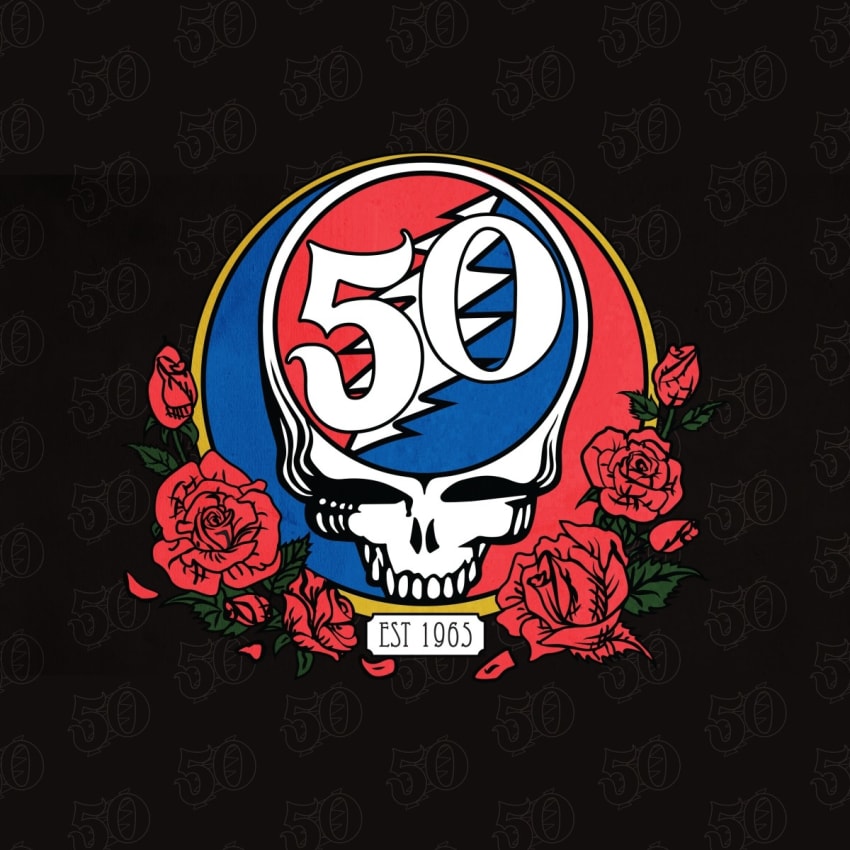
JAMBASE: Any surprising new insights from some of the better-known people you and Blair interviewed?
DG: We’ve been asked that a few times now, and no, I don’t know if anything’s surprising. Gail’s story about the day they found out about Lenny [Hart]’s theft is one of the great stories in the book and maybe there are some surprises in that. But at this point, we all know the Grateful Dead story so well — there’s not a lot of huge revelations. We felt what we could do is add more color to the tale, and also stay focused on the music. We’re not interested in dishing the dirt — the sucking and fucking and all that stuff. That’s out there. The music itself I think has been the hardest thing for writers to capture. I’m a musician and Blair has been deeply in music so that’s where we [rely on] our perspective. Dennis McNally, for example, is a historian, so he’s coming at it from that perspective. And other writers who don’t necessarily understand how the music works tend to focus more on the social stuff.
JAMBASE: How did you choose interviewees that, while not in the Grateful Dead or directly part of its story, could be useful in exploring that musical side? Jeff Mattson from Dark Star Orchestra is an example, and he’s significantly featured in the book.
DG: Again, I wanted to make sure that musical perspective was well-covered, so I went to many of my good musician friends who know that music. The guys in Dark Star Orchestra are really excellent informers because they’re so intimately involved with the music, know it well, and are also really articulate guys. I knew I would get good insights from them.
JAMBASE: Why the choice to an album of Grateful Dead songs?
DG: I’ve been playing Dead music starting since I became a Dead fan in 1972. I also never wanted to play Dead music and play exactly like Jerry, so, in the same way the Dead have, I was interested from the beginning in integrating other people’s’ songs into my own performances and making them sound like me. I needed a new studio record this year— it’s been awhile since I’ve done one — and with the release of the book, a record of my Dead stuff just made sense.
The selections were made on a number of factors, most notably that I can do these songs in my solo configuration. I shared them with a few intimates, who agreed that what I thought was an interesting Chuck Berry-type version of “Keep Your Day Job” was one of the weakest ones, so things like that I had to let go.
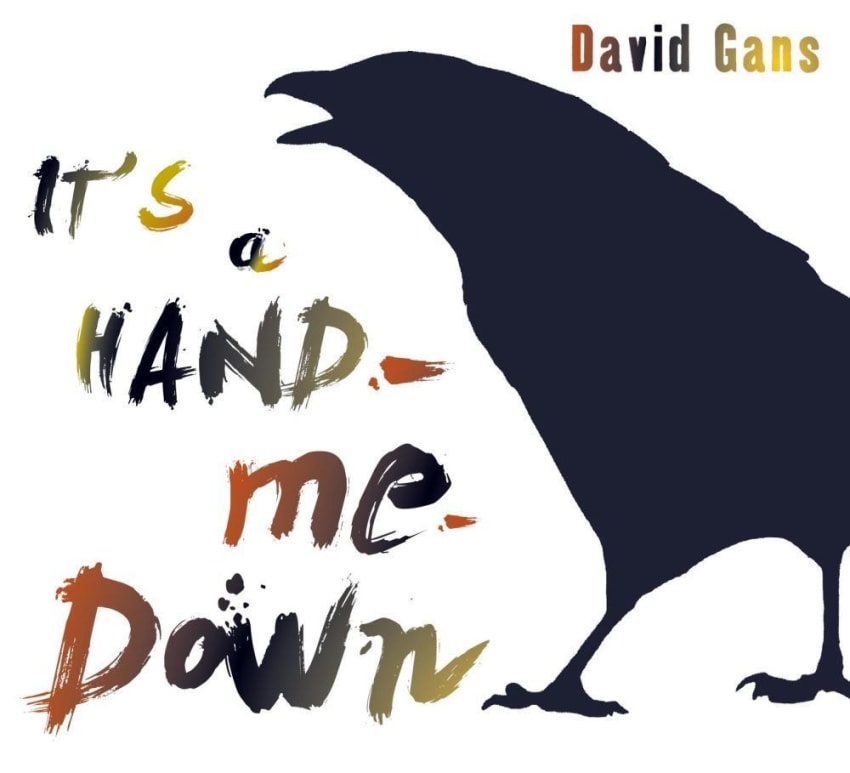
JAMBASE: What are your plans for 2016, performance-wise?
DG: I’m looking for a booking agent to help me do a lot of this stuff, and I want to get on some bigger festivals. Getting talent buyers interested is a lot easier if you have a booking agent who knows the territory. I will do the festivals I always do. I’m sorry to hear that the Gathering of the Vibes is taking a year off but I support their need to do that.
Part of my challenge is that I don’t have a lot of gigs here in my town. I can’t afford to take a band on the road. I can only go out and make any money on the road as a solo performer. Breaking in a new band, creating a following and creating the assurance of a gig is tough. I’m having a great time doing what I do, but I do miss having a band so I go out with the Rumpke Mountain Boys out of Cincinnati when I can — I’ll be with them on New Year’s Eve.
JAMBASE: Are you writing new original music?
DG: Yes, but I’m a very slow writer. I’ve been writing songs for 40+ years now and adding more to my repertoire. I had the amazing good fortune to write a song with Peter Rowan for his album Old School called “Drop the Bone,” and he was very kind and gave me a 50 percent interest in the song which he didn’t have to do. So I’m always working on something.
JAMBASE: As a close observer of the Dead scene, I’m curious to your thoughts on the 50th anniversary year and of recent developments like Dead & Company.
DG: Well, first off, I had an amazingly good time in Chicago with Fare Thee Well. It was more musically satisfying and fun than I thought it was going to be. I’m happy with what I’ve heard of Dead & Company so far. I’m not one of these people that thinks the world needs to have the guys playing together at the same time. I was happy with RatDog, happy with Phil & Friends and really happy with the Mickey Hart Band. As long as those guys are making music, I don’t have a strong opinion on what they should do, I’m just glad they’re all still making music.
JAMBASE: Do you interface much with the core four?
DG: Not too much these days, though I’m friendly with them. If I text Weir he usually answers, and Mickey I work with, we did a radio show together on Sirius XM for a few years. I don’t need much from them. I’m not really a journalist on the Dead beat these days, though if they’re interested in an interview, I’m always available.
JAMBASE: You mentioned your affection for Dark Star Orchestra. Are you hip to Joe Russo’s Almost Dead, too?
DG: I like them a lot. I also really enjoy Billy & The Kids. Tom Hamilton in both those bands is fantastic. But JRAD and all of these, yeah, I’ve always believed that this music works best when musicians take it and have conversations with it in their own words. Imitating what the Grateful Dead did doesn’t really interest me. For DSO I have great affection and they do what they do incredibly well, but it’s not the most interesting approach to that music. JRAD interests me because those guys care about interpreting those songs in a high-energy and really innovative way.
The other one I’ll mention is the Circles Around the Sun project, Neal Casal and what those guys created for the intermission at Fare The Well and the album that came out.
JAMBASE: Indeed, I’ve been spending a lot of time with that too.
DG: I love that record. They took melodic and rhythmic ideas from Grateful Dead songs and spun new and original improvisation around them. There’s a tune called “Ginger Says” and those words you know immediately come from a version of “West L.A. Fadeaway,” so when I listened to that I knew the atmosphere would sound like “West L.A. Fadeaway.” They derived interesting things from Grateful Dead themes and did something entirely original with each one of them. That to me is the highest manifestation of what this is all about.
Loading tour dates
